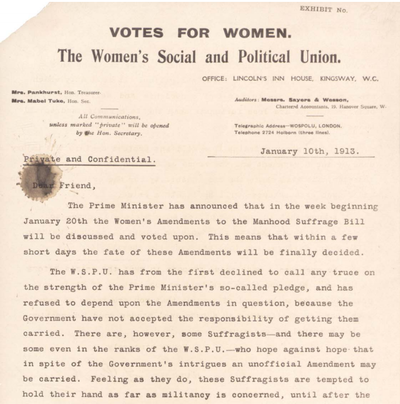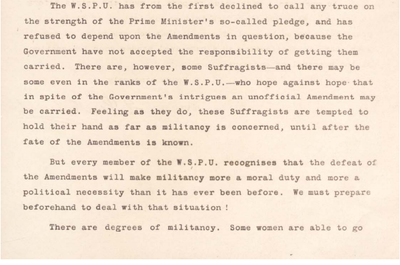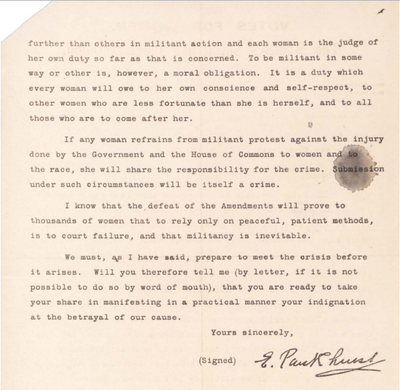Cooperation
Although their tactics differed, suffragists and suffragettes had the same goal: winning the vote. Many, especially in early years, recognized the importance of their militant counterparts.
"I hope the more old-fashioned suffragists will stand by them. In my opinion, far from having injured the movement, [the Suffragettes] have done more during the last 12 months . . . than we have been able to accomplish in the same number of years."
– Millicent Fawcett, 1906
Opposition
Despite instances of cooperation, the two groups usually had tense relationships.
|
Hover for caption.
Eva McLaren, "A Letter from the Home Counties Union of Women's Liberal Associations Commenting on Suffragettes" |
"If any woman refrains from militant protest against the injury done by the Government and the House of Commons to women and to the race, she will share the responsibility for the crime." |
"The question is not 'Are we content with the situation?' but 'Can militancy improve it?' We do not believe it can. . . . It is impossible to say that anything may be gained while much may be lost by inopportune militancy." |
Hover for caption.
Bernard Partridge, "The Shrieking Sister," 1906 |
|
Hover for caption.
Suffragists cycle to meeting, 1913, Corbis. |
As the suffragettes became more militant, suffragists felt they needed to distance themselves.
|
Pankhurst's Response
Hover for caption.
Emmeline Pankhurst, "Letter to members of WSPU outlining the case for militancy," 10th January 1913,
Emmeline Pankhurst, "Letter to members of WSPU outlining the case for militancy," 10th January 1913,




